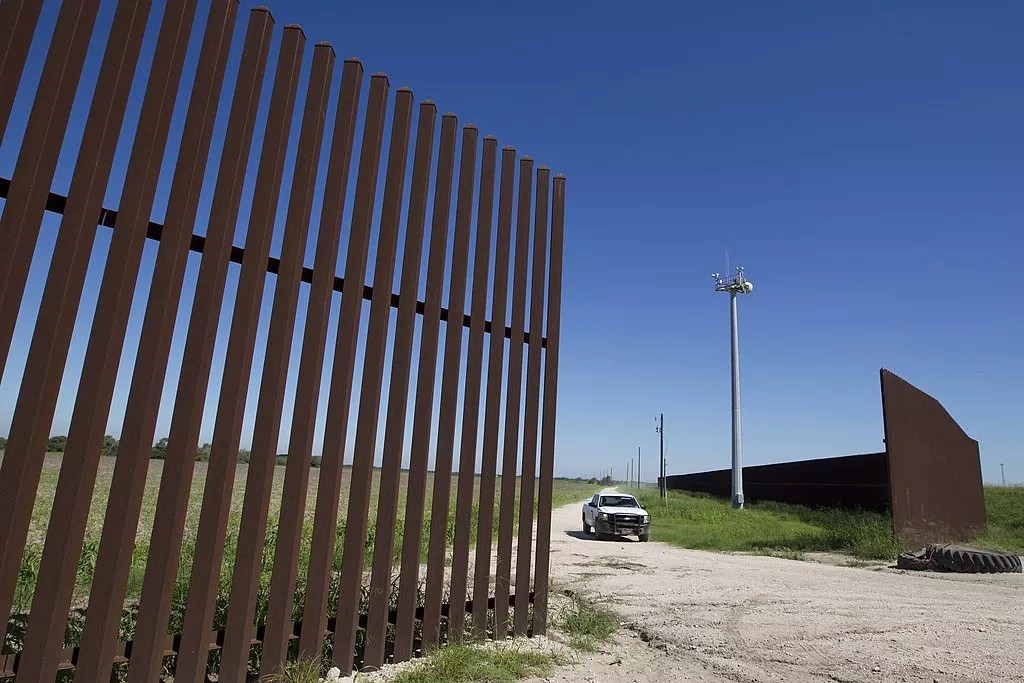
U.S. Customs and Border Protection, Public domain, via Wikimedia Commons

Audio By Carbonatix
Texas’ Department of Public Safety could be disproportionately targeting Hispanic people, according to a new report.
The research was published this summer by the Institute for Predictive Analytics in Criminal Justice (IPAC), an initiative of the Texas A&M University System at Tarleton State University.
“The deep dive on the statewide motor vehicle data performed by IPAC’s team of leading researchers and experts from across the A&M system has produced findings which will prompt for a better understanding of the racial profiling data across the state of Texas,” Tarleton State’s Alex del Carmen, founder and director of IPAC, said in a news release.
IPAC found that Hispanic people were more likely to be stopped than their white counterparts, and their likelihood of being searched was also higher. DPS searched Hispanic folks at a rate of 5.4% and searched white people at a rate of 4.1%. (The search rate for Black motorists was even higher at 9.2%.)
When news happens, Dallas Observer is there —
Your support strengthens our coverage.
We’re aiming to raise $30,000 by December 31, so we can continue covering what matters most to you. If the Dallas Observer matters to you, please take action and contribute today, so when news happens, our reporters can be there.
In addition, DPS searches involving Hispanic people were far less likely to come up with contraband. Just 28.5% of those searches culminated in the discovery of illegal goods compared with nearly 40% of searches involving white people.
DPS did not return the Observer‘s request for comment.
Domingo Garcia, national president of the League of United Latin American Citizens, said the report didn’t surprise him at all. He says he has “been stopped multiple times for driving while brown” and has had to talk to his sons about what to do if they’re pulled over.
“This is not the first time that DPS has been found to have racial disparities in its traffic stops.” – Kate Huddleston, ACLU of Texas
“We’ve known this all along, but now we have the empirical data to prove that we’re right,” Garcia said. Gov. Greg Abbott has used immigration as a “political piñata,” he added. It has resulted in DPS troopers disproportionately stopping Hispanic drivers, even though the searches don’t find illegal drugs most of the time.
Garcia described Operation Lone Star, the governor’s controversial border crackdown, as a “total bust” and a waste of taxpayer money that has led to Hispanics getting harassed and profiled.
Many innocent people are getting stopped unconstitutionally, Garcia said, adding that some “are being searched with no probable cause and their civil rights are being violated strictly because of their appearance.
“That should not happen in Texas or anywhere in America,” he continued.
Kate Huddleston, a staff attorney with the ACLU of Texas, said DPS’ traffic stops have an “immense chilling effect” on the daily lives of those in border communities. There’s also a risk of serious injuries and deaths from Operation Lone Star-related vehicle pursuits. Certain areas of South Texas are saturated with DPS, with people enduring repeated stops and tickets for minor traffic violations.
It’s critical that the Department of Justice investigate and intervene to stop DPS’ bias-based policing, she argued.
From reviewing certain migrant trespass arrests, Huddleston said it’s easy to see that DPS is engaging in racial profiling. Officials are making discretionary decisions based on people’s appearance and perceived race, she said.
The report’s finding about contraband is particularly troubling and is a major sign of racial profiling in policing. “This is not the first time that DPS has been found to have racial disparities in its traffic stops,” she said, “and I think the continuation of this pattern is certainly a cause for serious concern.”